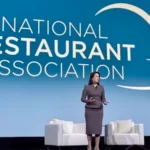By Pia Larson, Fingerprint Marketing
If you sneeze or have a runny nose, what do you ask for? A Kleenex, of course. Seldom do you ask for the generic tissue. Or, again, if you live in the South, what do you ask for when you’re thirsty? Not a soda, not a soft drink, but a Coke – even if you actually want, say, a Dr. Pepper or a Pepsi. In many areas of the South, all soft drinks are Cokes. In both instances, these two brands are the default umbrella names—the ones that first come to mind —for all similar products. Now, that right there is brand awareness.
But how does that carry over into marketing a brand in the hospitality arena?
[expander_maker id=”1″ more=”Read more” less=”Read less”]
Brand competition in the hospitality industry
The hospitality and travel industry is on the upswing. The competition among brands is keen, and brand awareness is at a premium. Consider the following statistics from 4Hoteliers:
- In 2016, travel and tourism “contributed $7.6 trillion to the global economy and supported 292 million jobs.”
- One in 10 jobs is connected to this industry.
- This sector is projected to account for 11.4 percent of the global GDP by 2027 and to “support more than 380 million jobs globally.”
The hospitality game is getting bigger with more and more competitive players. A lot of the growth, though, is additive because as consumers have more disposable income, they eat out more and take more trips. Still, competition is keen and achieving brand awareness a critical element of any sound marketing strategy.
Hospitality’s unique brand awareness challenges
It’s also important to keep in mind that hospitality sales differ from straight-up consumer goods sales. Hospitality marketers are trying to sell tangible and intangible product—both goods and services—all while creating brand awareness. More often than not, the services sold are paramount, so the job is to create the right consumer feeling about the brand. Does your company offer an elite luxury product or a fun affordable one? Either way, consumers’ perception of your brand has to be accurate.
Marketing a brand also involves in large part creating a consistently recognizable brand because the hospitality industry is made up chiefly of experiential services. Brand recognition ensures that customers will return to use your services over and over again. Repeat customers are more profitable, so brand awareness and marketing strategies have to embrace both maintaining healthy relationships with past customers and striving to draw in new ones.
According to Concordia University’s “The Importance of Marketing in the Hospitality Industry,” “a solid marketing strategy is critical to building a brand, attracting new customers and maintaining loyalty. The hospitality industry is no different. Because customer loyalty is key, marketing managers and executives devote a lot of time and resources to building brand awareness and creating ongoing, interconnected campaigns…. However, this particular industry has a unique set of challenges that must be overcome.”
Modern brand marketing challenges
The increasing importance of brand awareness (and of marketing accordingly) is a result of two main factors: technological changes/adaptations and changes in customer profiles.
As for the technological changes, a huge driving force is the importance of mobile. In a recent article on 4Hoteliers.com, marketing expert Ram Gupta pointed to the impact of technology.
“In emerging markets around the world, one billion people are expected to come online globally. Most of these will be customers who will experience their entire guest lifecycle on their smartphones. Hospitality and travel companies have no choice but to invest in mobile-friendly and mobile-first guest engagement and retention strategies,” he wrote.
The upshot is that customers will respond best to a brand that offers mobile-friendly services and a personalized experience.
The customer profile is also hugely important in the way your brand must be presented now. According to Gupta, the tourism industry, for example, “is witnessing a change in the psychographic and demographic profiles of travelers. Along with Gen X travelers, there’s a fresh influx of millennials, whose expectations and lifestyle are setting completely different standards for industry performance.”
Currently, then, the customer experience is the most important of all brand differentiators, driving both customer loyalty and referrals. Providing unmatched service that roots the hotel or restaurant in its local climate while also giving unique experiences is now a critical factor in the success of a hospitality business.
Elements of marketing a brand
Strategies for marketing a brand are as individual and customized as the companies that deploy them. There are, however, some common and necessary elements, such as:
Preliminary Research – All effective brand marketing starts with research, but it’s especially critical in the hospitality industry. You simply must understand why consumers choose one particular brand over another and what would make them choose yours. It’s the role of marketers to determine what makes consumers choose a particular hospitality product/service.
Awareness Creation – Creating brand awareness is often the crucial element. If consumers don’t know about you, they can’t purchase what you’re selling. Traditional marketing channels still work to some degree, but digital trumps them all now. That’s why a firm that specializes in both digital marketing and business branding brings exceptional value.
Promotions – For brand-centric marketing, you just can’t beat the power of the principle of reciprocity – that is, promotions. You offer potential hotel guests something like a free spa treatment, and they reciprocate by booking a three-day stay and purchasing other hospitality services.
Relationship Creation/Maintenance – For any business, relationships are everything, and they are at the heart of brand awareness. That means ongoing brand marketing needs to create and maintain the kind of customer relationships that result in social media and word-of-mouth referrals.
The importance of a recognizable brand and effective marketing of that brand are undeniable, especially if you want the kind of brand awareness that Kleenex and Coke have – where that’s the first thing people think of when they want that kind of product. But you have a hospitality business to run.
A qualified marketing firm – one that can custom tailor your marketing/branding strategy to meet your specific needs—is a great way to get the services you need to address to establish your brand and keep it in front of guests.
So, what’s in a brand? Everything if you get it right. Not much if you get it wrong.
Pia Larson and Seattle-based Fingerprint Marketing help customers address all facets of branding—the look the feel, the story and the transactions—and then get brands in front of customers. Learn more at fingerprintmarketing.com.
[/expander_maker]














